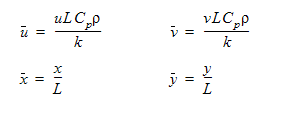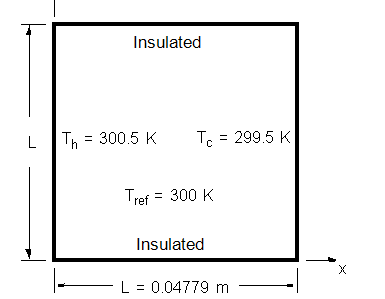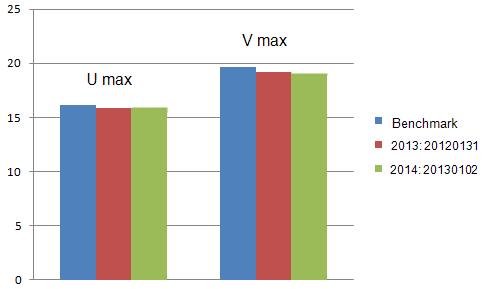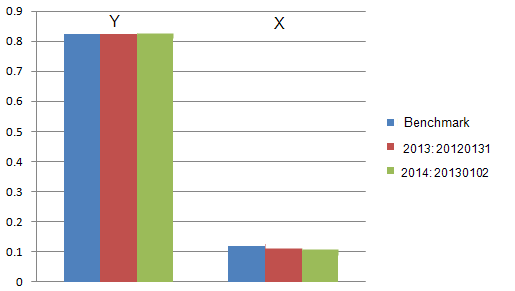Analysis Characteristics
- Steady-state
- 2D internal flow
- Laminar
- Incompressible
- Natural convection
Reference
Davis, G. De Vahl and Jones, I.P., “Natural convection in a square cavity: a comparison exercise”, Inter. Jour. for Num. Meth. in Fluids, 3, (1983).
Problem Description
Temperature and velocity distributions are calculated for laminar, buoyancy-driven flow in a square cavity. The top and bottom walls are insulated, and the left and right walls are at fixed temperatures differing by 1 K.
The Rayleigh number is computed from:

-
 is the coefficient of volumetric expansion, defined as:
is the coefficient of volumetric expansion, defined as: 
- g is the acceleration of gravity
-
 is the density
is the density -
 is the specific heat
is the specific heat - L is the length of the cavity
-
 and
and  are the temperatures of the left and right walls, respectively
are the temperatures of the left and right walls, respectively - k is the conductivity of the fluid
-
 is the viscosity.
is the viscosity. - Here, the Rayleigh number is 10,000.
This problem is analyzed to verify the fluid flow and heat transfer modeling capabilities of Autodesk Simulation CFD. Accuracy is assessed by comparing velocity components at specific locations in the cavity. Velocities and coordinates are normalized in accordance with Davies, et al. (1983) as follows:

Geometry and Boundary Conditions

Results
Using the expressions defined above for  ,
,  ,
,  and
and  , the following results are computed:
, the following results are computed:
| Benchmark | 2013: Build 20120131 | % Error | 2014: Build 20130102 | % Error | |

|
16.178 | 15.905 | 1.686 | 15.862 | 1.952 |

|
0.823 | 0.826 | 0.394 | 0.826 | 0.404 |

|
19.617 | 19.488 | 0.653 | 19.458 | 0.809 |

|
0.119 | 0.114 | 4.188 | 0.113 | 4.373 |

